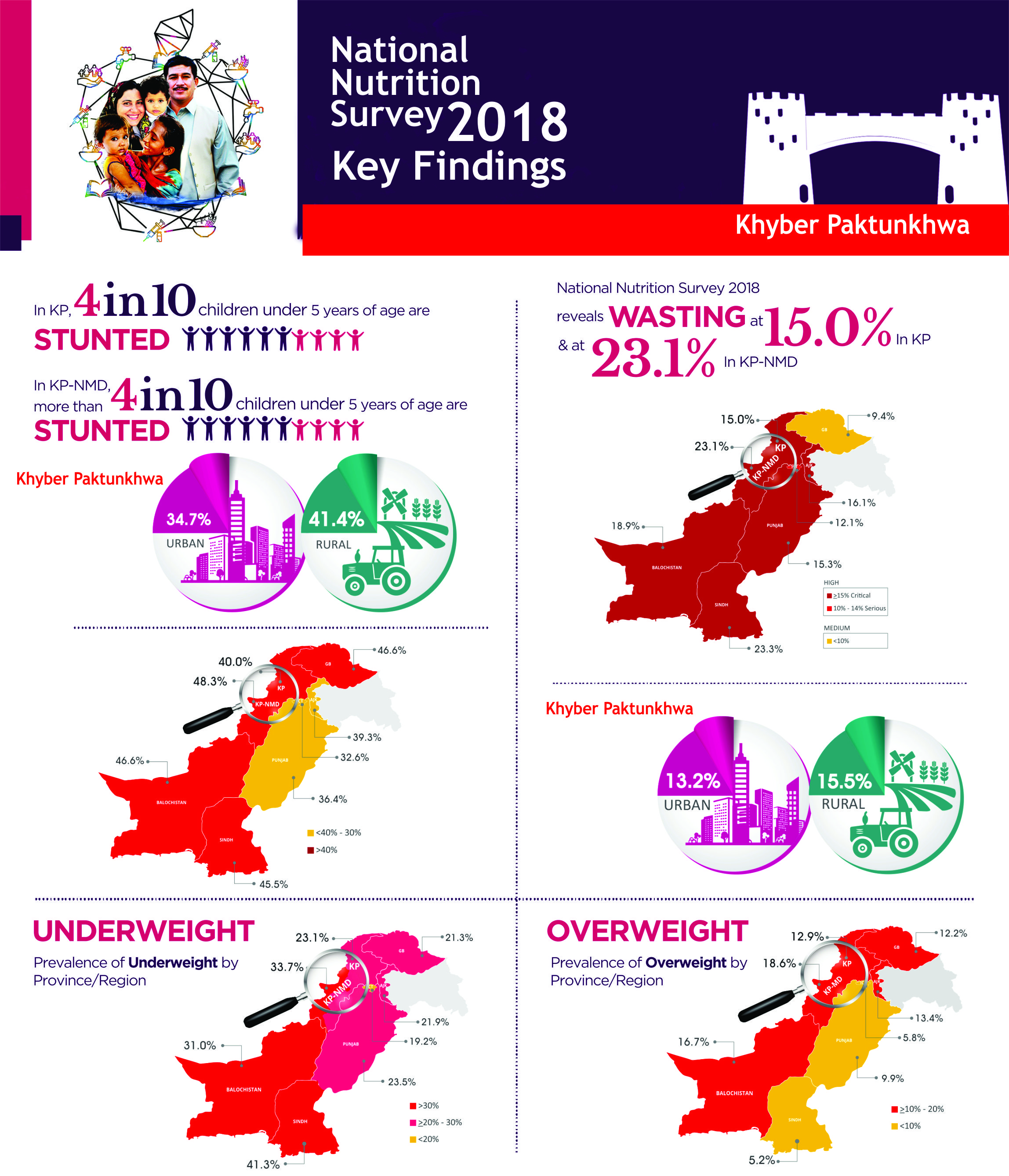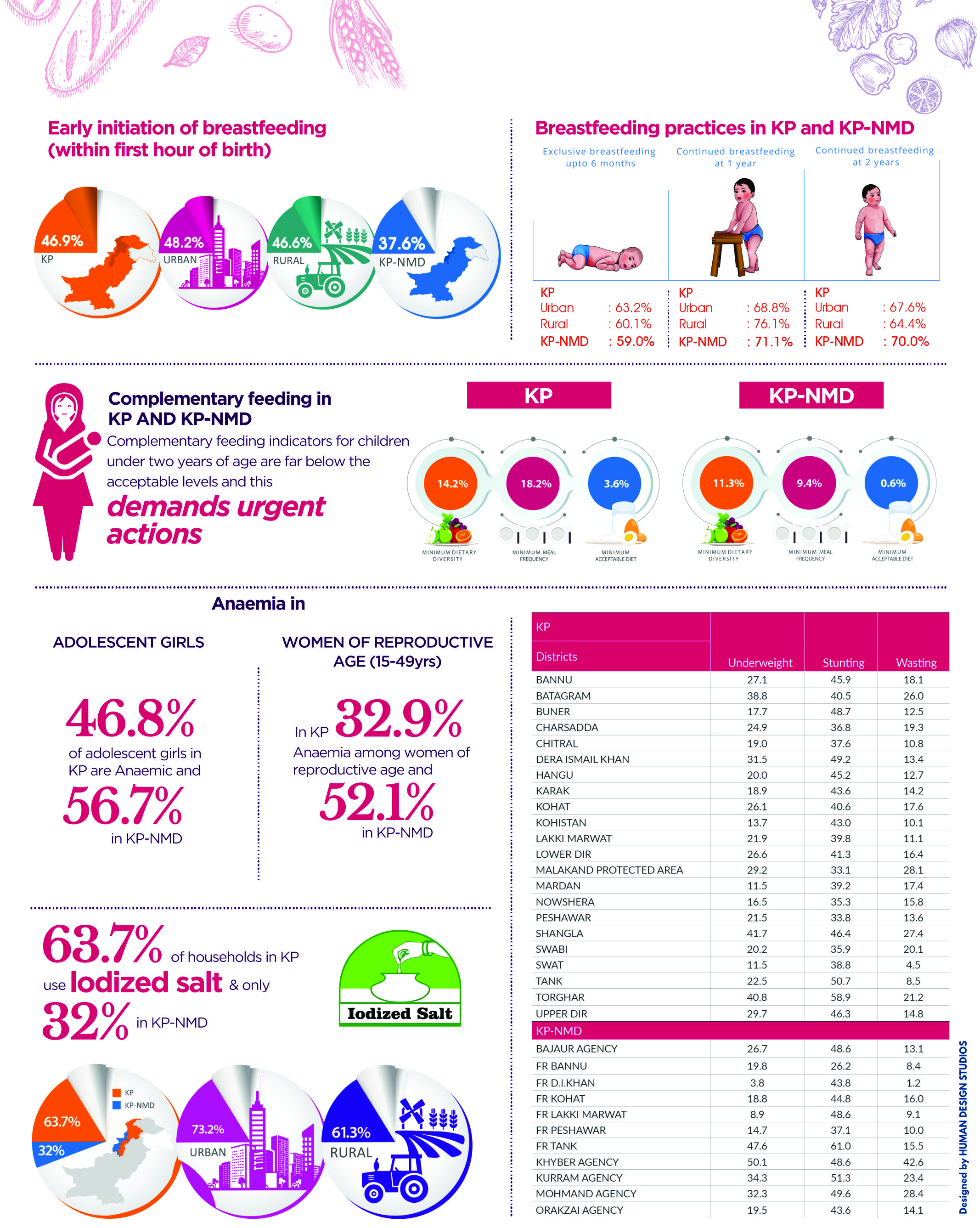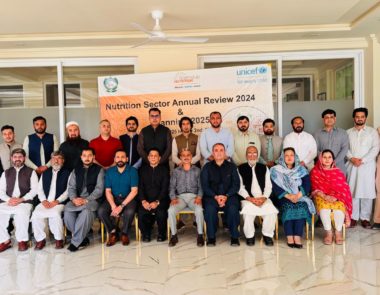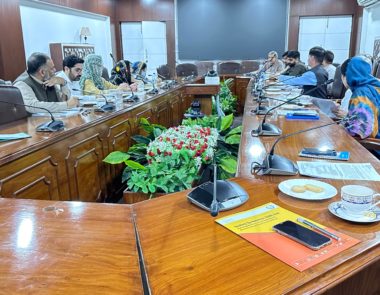KP Nutrition Sector Review Meeting 2024 & Planning 2025
3 Days Nutrition Sector Annual Review 2024 and Planning Meeting for 2025 was organized by SUN Unit P&D.The Ist Day was Chaired

To protect the nutritional status of the most vulnerable families and individuals (children and pregnant and lactating women in particular) in selected geographic location of Khyber Pakhtunkhwa, the nutrition program under the overall supervision of Directorate General of Health Services, Khyber Pakhtunkhwa in collaboration with Scalling Up Nutrition (SUN) unit at Planning and Development Department Khyber Pakhtunkhwa, Provincial Disaster Management Authority (PDMA) and Nutrition Development Partners including WHO, UNICEF, UNWFP, UNOCHA, FAO and Civil Society Organizations will support implementation of COVID-19 sensitive Integrated package of emergency lifesaving nutrition interventions. The joint efforts of government of Khyber Pakhtunkhwa and Nutrition Development Partners will ensure uninterrupted delivery of critical life-saving nutrition promotive, preventive and curative services, while implementing appropriate infection prevention control measures to protect beneficiaries and frontline service providers from spread of COVID-19 by adopting global and national recommended safety measures.



Chief Minister Khyber Pakhtunkhwa
(Dated: 31 Aug 2017)

Addl: Chief Secretary Khyber Pakhtunkhwa
(Dated: 31 Aug 2017)
Latest Updates on our Workshops and Achievements

3 Days Nutrition Sector Annual Review 2024 and Planning Meeting for 2025 was organized by SUN Unit P&D.The Ist Day was Chaired
The subject orientation session was held under the Chairmanship of Additional Secretary (Planning), Planning & Development Department Government of Khyber Pakhtunkhwa. The


Capacity for Nutrition (C4N) SUN Global Team visited KP regarding the establishment of a National Multi-sectoral Nutrition Management Information System/Dashboard